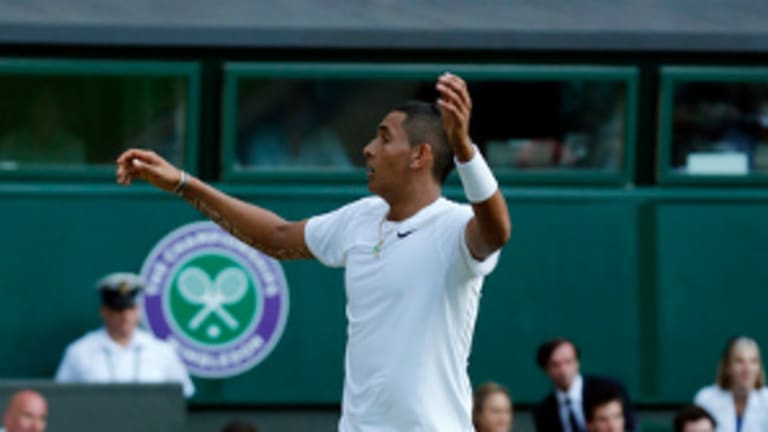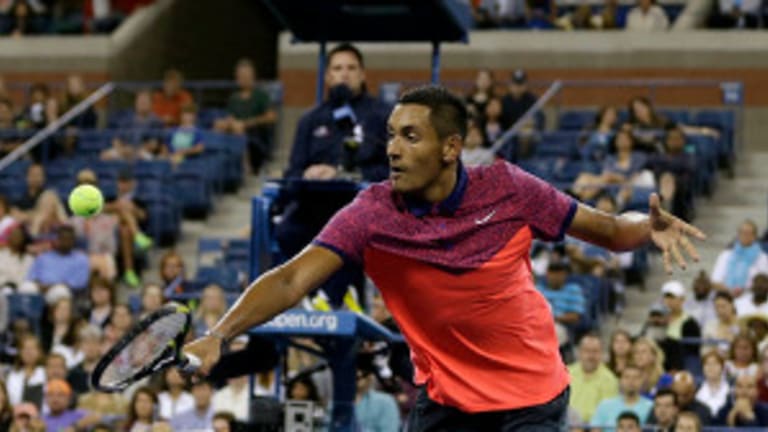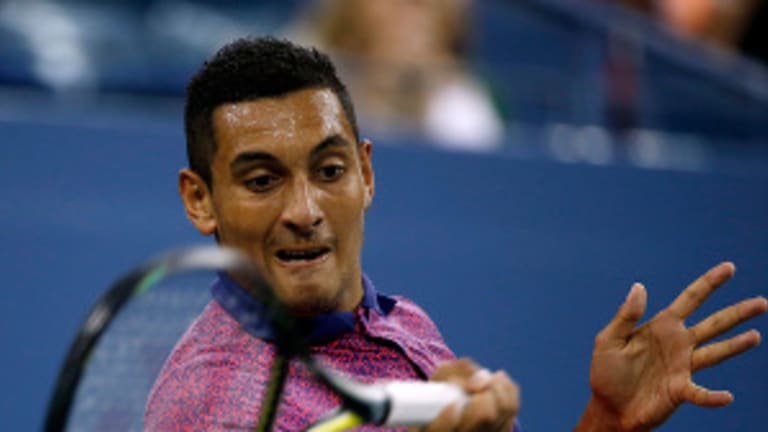Nick Kyrgios is one of the most exciting young players to break out of the ATP pack in a long time. Nick Kyrgios is also the first exciting new player to call a timeout and withdraw from tour play just when his momentum has him poised to break through to the elite level.
Kyrgios, the 19-year-old Australian who upset Rafael Nadal in the fourth round of Wimbledon, was the No. 8 seed this week in Kuala Lumpur. Word is that he went to play there merely to please his Malaysian mother, Nill. It wasn’t particularly good motivation, for Kyrgios was upset by his fellow countryman, Marinko Matosevic.
And that’s it for 2014 for Kyrgios, save a doubles match in Malaysia. He’s pulled out of the other three events he had on his schedule, Tokyo, Stockholm, and Vienna. Three-quarters of the way through his breakout year, Kyrgios is putting a stopper in it, claiming he’s “emotionally spent,” that he just wants “to sit back and take a break from everything.”
Unfortunately for Kyrgios, nobody else will be sitting back and taking a break, and few who found themselves in a comparably choice position at so young an age did either. It’s an unusual and somewhat puzzling decision by this appealing, gregarious young man.


